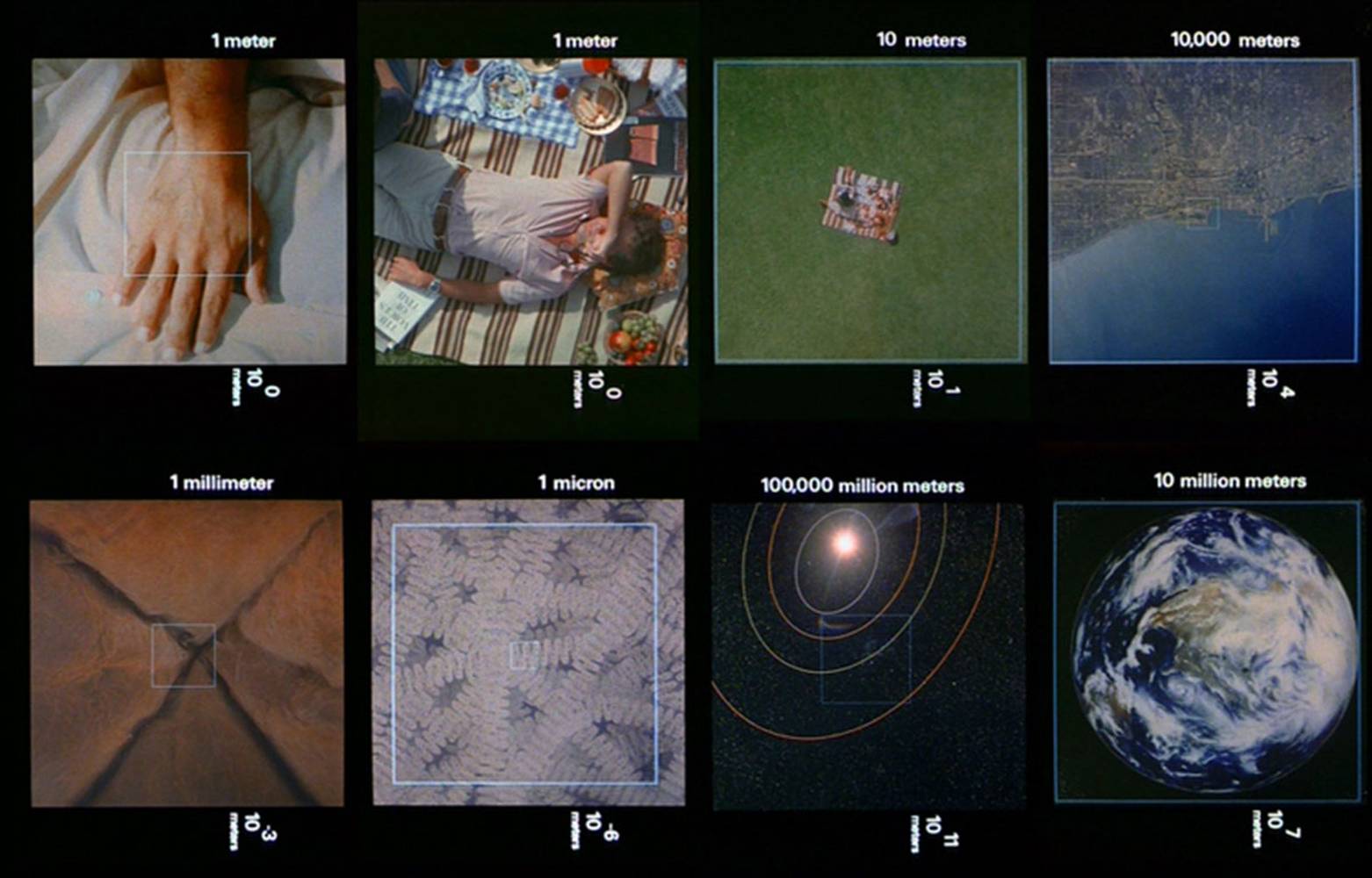 From "Powers of Ten" by Charles & Ray Eames (1977)
From "Powers of Ten" by Charles & Ray Eames (1977)
I recently watched the 2011 documentary "Eames: The Architect & The Painter" on the life and work of Charles & Ray Eames.
About two thirds in, there is a section on the duo's educational short films. This quote from Richard Saul Wurman really stood out:
"You sell your expertise — you have a limited repertoire. You sell your ignorance — itˋs an unlimited repertoire! He was selling his ignorance and his desire to learn about a subject. And the journey of him not knowing to knowing was his work."
While originally trained as an architect and painter respectively, and coming to fame first and foremost as furniture designers, Charles & Ray Eames seemed to have an almost endless curiosity about how things worked, for which their filmmaking served as an outlet. After starting to make short films in 1950, they went on to cover a variety of subjects from early computing technology to cameras or, perhaps most famously, the universe at varying scales ("Powers of Ten") — some of which was done on commission for the respective companies making the technology.
From the kinds of educational programming I loved to watch on TV as a Kid, to taking things apart around the house (admittedly more often than putting them back together), to reading about all kinds of concepts and disciplines later on, I could always relate to that curiosity.
And when it comes to educational content in today's widely used media like podcasts or YouTube videos, some of the best and most engaging things out there seem to be born out of that same curiosity. It's not just that this motivates creators to come up with better productions, or clearer explanations. Often, a large part of the excitement that drove them to get started is captured in the final product.
You aren't watching an extremely polished presentation of abstract concepts, but following along as someone figures something out because they actually want to know. This makes everything more authentic — but most importantly, it captures your own sense of wonder and makes you think.
After it's over, you're not left to frantically try and remember as much as possible, but instead you wonder where what you just saw could take you next, and the way you think about the subject has changed a little. The next time you come across something unfamiliar, you are marginally more likely to want to figure it out, because you know there might just be something interesting hiding beneath the surface, waiting to be discovered.
This approach won't teach you all the nitty-gritty technical details of being a software engineer, or a great manager, or a physicist — but it might just make you want to learn them in the first place. As an added bonus, as 99% Invisible's creator Roman Mars said in a conversation, it makes you a bit more optimistic about the world to see all the interesting things people have put thought and effort into creating and improving.
In The Wild
Here are some of my favorite examples of this kind of content out there:
- 99% Invisible — On the hidden design details of everyday life
- Reply All — A "show about the internet"
- Ben Eater — Building a functional computer from basic parts, on breadboards
- Numberphile & Computerphile — Exploring a wide range of ideas from mathematics and computer science
- 3blue1brown — Some of the best math videos on youtube
- From Nand to Tetris — One of the best online courses, taking you through a realistic project step by step